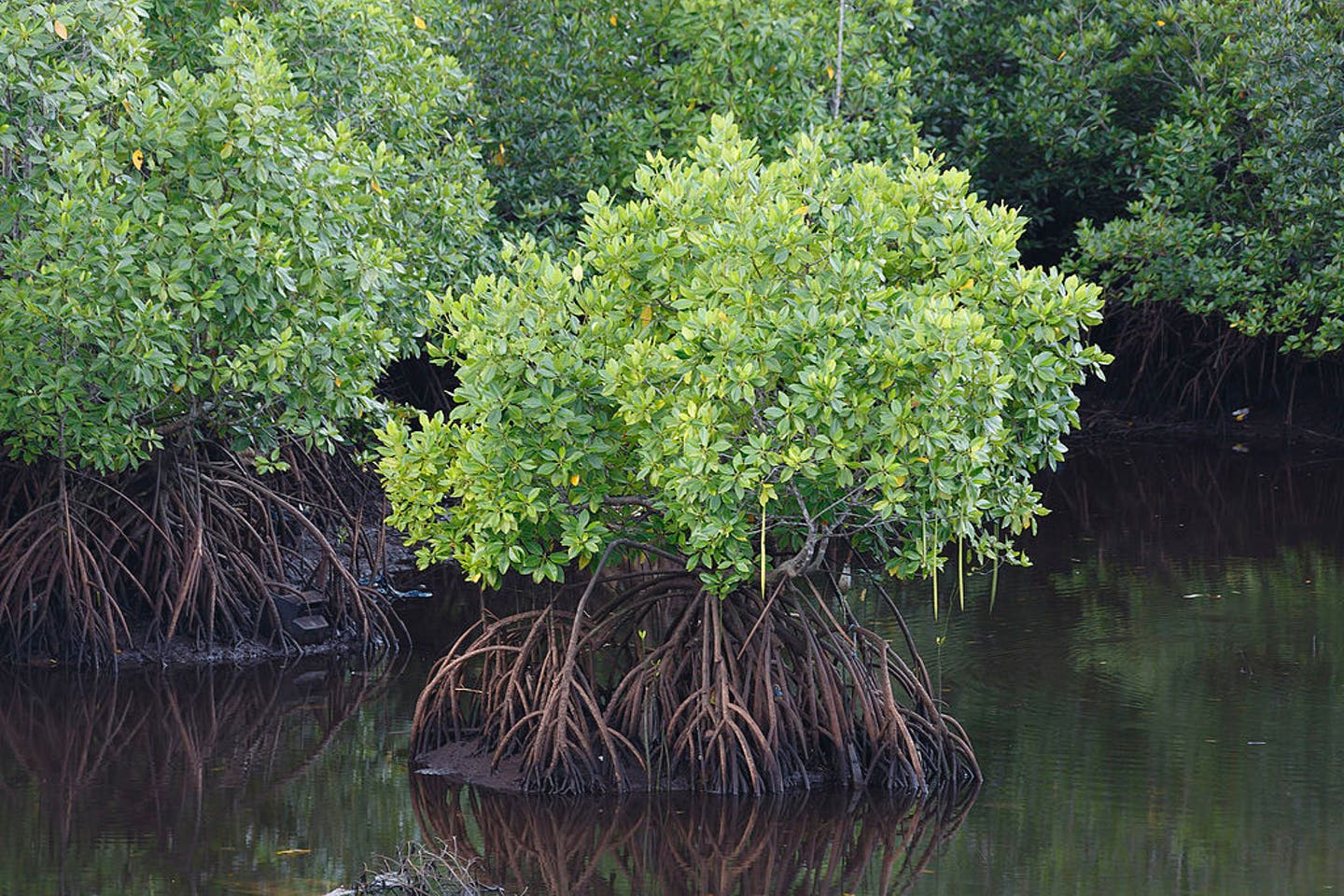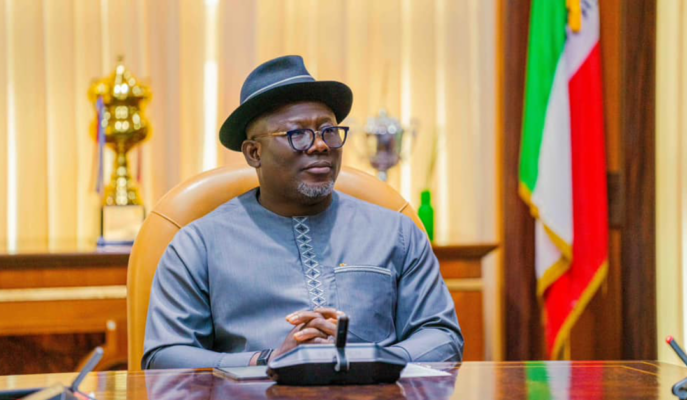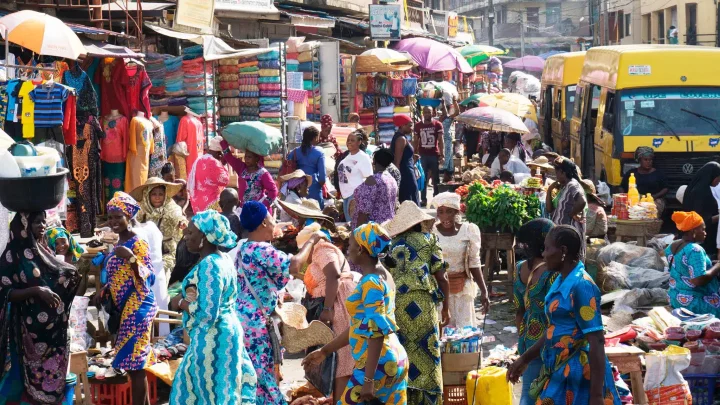Mangroves on water surface
BY AGIANPE ONYEMA
As we commemorate World Environment Day 2024 with the theme ‘Reviving lands for a brighter future’, we find ourselves at a crucial juncture. According to findings by the Intergovernmental Panel on Climate Change’s (IPCC) sixth assessment report (AR6) released in 2023, adverse climate impacts on people and ecosystems are already more far-reaching and extreme than anticipated. Human-induced activities are driving global temperatures, putting the world at risk of reaching the threshold of 1.5 degrees C sooner than expected. Urgent action is needed to build resilience to climate risks and deliver broader sustainable development benefits.
This year’s theme focuses on land restoration, stopping desertification and building drought resilience. It resonates deeply with the realities and challenges facing Nigeria.
it is therefore imperative to reflect on the critical role of land and ecosystems in Nigeria’s environmental health and sustainability. Our nation’s rich biodiversity, fertile lands, and unique ecosystems are under unprecedented threat from deforestation, pollution, and climate change. As we join the global community in reflecting on environmental stewardship, we must seize this moment to commit to restoring our lands, protecting our ecosystems, and combating climate change. The decisions and actions we take today will shape the environmental landscape for generations to come.
Advertisement
The imperative for restoration
Nigeria’s ecosystems, from the lush rainforests of the south to the arid Sahel in the north, are under severe threat. Deforestation, desertification, and land degradation are accelerating at an alarming rate, primarily due to unsustainable agricultural practices, urbanisation, and industrial activities. According to the United Nations, Nigeria loses approximately 350,000 hectares of land annually to desertification, particularly affecting the northern regions. Restoring degraded lands is not just an environmental necessity but a socio-economic one as well. Healthy ecosystems provide essential services such as clean air and water, fertile soil for agriculture, and habitats for countless species. They are also vital in mitigating the impacts of climate change by acting as carbon sinks, absorbing carbon dioxide from the atmosphere. Initiatives such as the Great Green Wall, which aims to combat desertification and restore degraded lands across the Sahel, must be bolstered with robust support and funding. Communities should be empowered with knowledge and resources to adopt agroforestry and other sustainable farming techniques that replenish the soil and enhance productivity.
Protecting biodiversity
Advertisement
Nigeria’s biodiversity is among the richest in Africa, home to numerous endemic species. However, this biodiversity is rapidly declining due to habitat loss, pollution, and climate change. The Niger Delta, one of the most biodiverse regions, faces severe pollution from oil spills, threatening both terrestrial and aquatic life. To protect our biodiversity, we must expand and effectively manage protected areas to safeguard critical habitats and species, engage local communities in conservation efforts, ensuring that they benefit from preserving their natural heritage as well as implement and enforce robust environmental laws to prevent illegal logging, poaching, and pollution.
Combating climate change
Climate change poses a significant threat to Nigeria, with increasing temperatures, erratic rainfall patterns, and rising sea levels. These changes exacerbate existing environmental issues and pose new challenges to food security, water resources, and human health. To combat climate change, Nigeria must:
- Transition to Renewable Energy: Invest more in solar, wind, and other renewable energy sources to reduce dependence on fossil fuels.
- Promote Sustainable Agriculture: Encourage farming practices that enhance soil health, conserve water, and reduce emissions.
- Reforestation and Afforestation: Launch large-scale tree-planting initiatives to restore deforested areas and expand forest cover.
Call to action
Advertisement
On this World Environment Day, let us reaffirm our commitment to restoring Nigeria’s land and ecosystems. Government agencies, big businesses and private sector, civil society, and every Nigerian must play a part in this endeavour. The responsibility to safeguard our environment is a collective responsibility and transcends government policies and international agreements. It requires the active participation of every Nigerian. From reducing plastic use and waste to supporting local conservation efforts and advocating for sustainable practices, individual actions collectively make a significant difference. Educational campaigns should be intensified to raise awareness about environmental issues and inspire a culture of conservation and sustainability among all citizens, especially the youth. These are actionable steps we can take:
- Actively support reforestation projects by participating in or donating to tree-planting campaigns.
- Intensify educational campaigns to raise awareness about environmental issues and inspire a culture of conservation and sustainability among all citizens, especially the youth.
- Adopt sustainable consumption practices to minimise waste, especially in our homes by using the 3Rs: Reduce, Reuse, Recycle.
- Advocate for Policy Change by encouraging policymakers to prioritise climate action and sustainable land management practices. A good place to start is to call for the urgent reform of the Nigeria Land Use Act to include sustainable development and climate change considerations crucial for the country’s long-term environmental and economic health.
“Our Land, Our Future” is a clarion call to action to all Nigerians to take decisive steps toward environmental restoration and protection. The health of our land directly impacts our future, influencing our economy, health, and overall well-being. By restoring our ecosystems, protecting biodiversity, and combating climate change, we can secure a sustainable and prosperous future for Nigeria.
Agianpe is a PhD student in sustainable development with a keen interest in strengthening democratic reforms for sustainable development in Nigeria.
Advertisement
Views expressed by contributors are strictly personal and not of TheCable.
Add a comment






